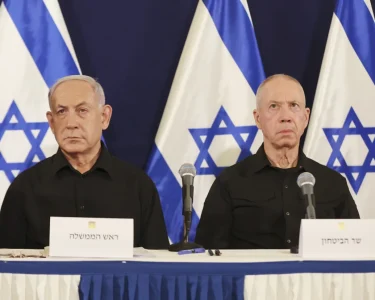In the latest development in the ongoing conflict between Israel and Hamas, the United States has delivered its 500th US Military Aid of Airlift to Israel. This significant milestone underscores the enduring commitment of the US to support Israel’s defense amid escalating tensions. However, while military aid continues to flow, efforts to broker a truce between the warring sides have hit a critical impasse, leaving the region in a state of uncertainty.

A Milestone in US-Israel Relations
The arrival of the 500th airlift of military aid marks a momentous occasion in the long-standing partnership between the United States and Israel. Over the years, the US has been a staunch ally of Israel, providing extensive military support to ensure its security in a region fraught with instability. This latest airlift includes a range of military equipment, including precision-guided munitions, missile defense systems, and other advanced weaponry designed to bolster Israel’s defense capabilities.
US officials have reiterated their unwavering support for Israel’s right to defend itself against external threats. In a statement, a senior US defense official emphasized that this airlift is part of a broader strategy to ensure that Israel maintains its qualitative military edge in the region. “The United States stands with Israel in its fight against terrorism,” the official stated, “and we will continue to provide the necessary support to ensure Israel’s security.”
Truce Talks at a Standstill
While the delivery of military aid continues, diplomatic efforts to broker a ceasefire between Israel and Hamas have reached a deadlock. Multiple attempts at negotiation, mediated by international actors, have so far failed to produce a lasting agreement. The latest round of talks, which were held under the auspices of the United Nations, ended in frustration as both sides remained entrenched in their positions.
Israeli officials have insisted that any truce must include guarantees that Hamas will cease its rocket attacks and dismantle its military infrastructure in Gaza. On the other hand, Hamas has demanded an end to the Israeli blockade of Gaza and the withdrawal of Israeli forces from Palestinian territories. These opposing demands have created a significant barrier to progress, with neither side willing to compromise on their core issues.
The Human Cost of Conflict
As the conflict drags on, the human toll continues to mount. In Gaza, the ongoing Israeli airstrikes have resulted in significant civilian casualties, with many families displaced from their homes. Hospitals in the region are overwhelmed, struggling to treat the influx of wounded civilians. Humanitarian organizations have called for an immediate ceasefire to allow for the delivery of essential aid to those affected by the conflict.
In Israel, the constant threat of rocket attacks has created a climate of fear and uncertainty. Many residents in southern Israel have been forced to seek refuge in bomb shelters, as Hamas continues to target civilian areas. The psychological impact of living under the constant threat of attack has been profound, with many Israelis expressing frustration and fatigue over the seemingly endless cycle of violence.
International Response and Calls for Peace
The international community has been vocal in its calls for an immediate ceasefire. Leaders from around the world have urged both Israel and Hamas to return to the negotiating table and work towards a peaceful resolution. The United Nations has expressed deep concern over the humanitarian situation in Gaza and has called for an end to the violence.
Despite these calls, the path to peace remains elusive. Both sides have deep-seated grievances that have festered for decades, and finding a solution that addresses the concerns of both Israelis and Palestinians will require sustained diplomatic effort and political will.
The Road Ahead
As the conflict shows no signs of abating, the focus now shifts to the international community’s role in facilitating dialogue and encouraging compromise. The United States, as a key ally of Israel, is expected to play a central role in these efforts. However, the challenges are immense, and the road to peace is fraught with obstacles.
In the meantime, the delivery of military aid to Israel continues to be a priority for the US, with more airlifts expected in the coming weeks. This support is seen as crucial to ensuring that Israel can defend itself against ongoing threats, even as the pursuit of a diplomatic solution remains a distant hope.




